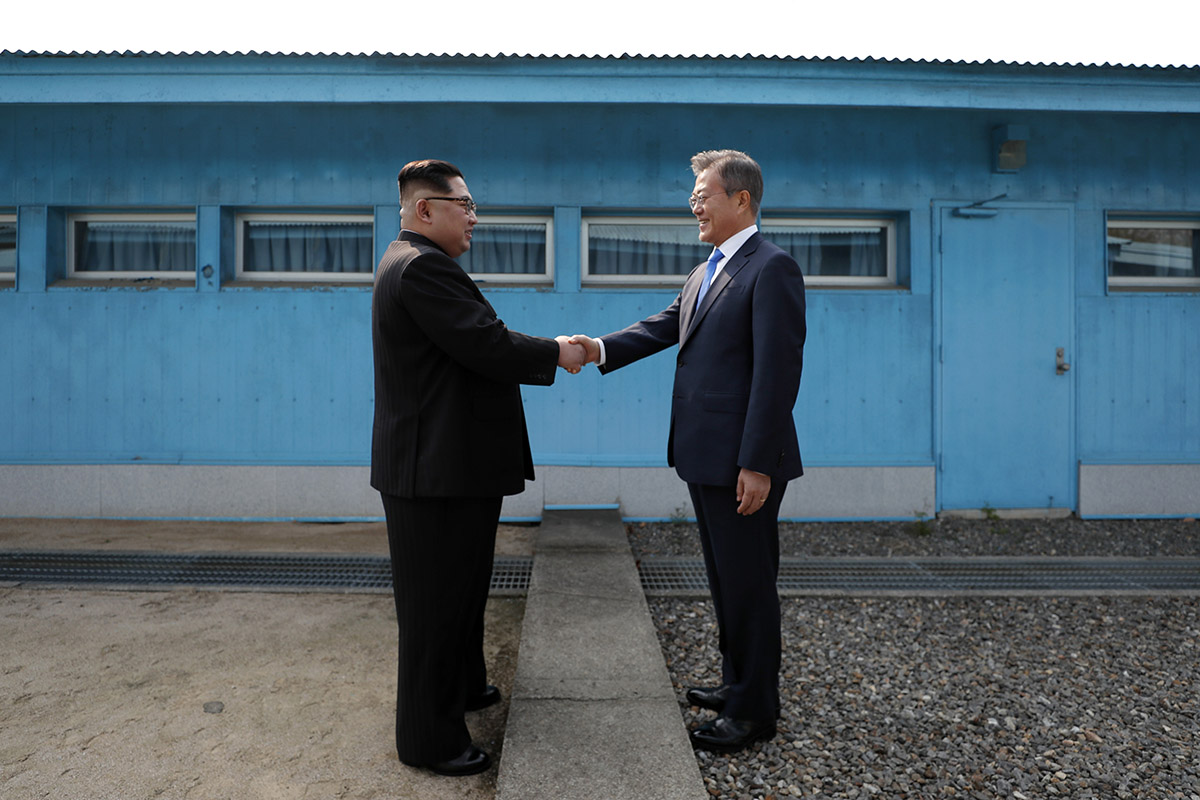On the 21st of April, a decision made by North Korea’s controversial leader, Kim Jong-un definitely caught the world off guard. It was a momentous occasion as Pyongyang made the decision of suspending their ballistic missile tests as well as to shut down the Punggye-ri nuclear test site. There are camps suggesting that the decision to denuclearise is a caving-in to international pressure, with increasing economic sanctions on Pyongyang a big concern for Jong-un. Whatever the motivations were, such a move has raised many eyebrows with its consequences not limited to the peninsula alone.
The events that have unfolded after Jong-un’s decision is equally surprising. Over the past week, the leaders of North Korea and South Korea met for the first time in over a decade. The historic meeting will definitely be remembered for good reasons as it was the first time a North Korean leader has ever set foot in the South. The meeting between Jong-un and the South Korean President, Moon Jae-in carries hope and promise for both Koreas to foster economic cooperation. They agreed to remove the arsenal of nuclear weapons from the Korean Peninsula, and within the year, pursue talks with the United States of America to declare an official end to the Korean War which occurred in the early 1950s. The meeting between both heads of state could open up the possibility for separated families (one of the repercussions of the Korean War) to be reunited again.
“South and North Korea confirmed the common goal or realising, through complete denuclearisation, a nuclear-free Korean Peninsula,” was written on a statement signed by Jong-un and Jae-in, after their much-anticipated meeting at the border village of Panmunjom. In another twist to the tale, a statement by the Korean News Central Agency (KCNA) has highlighted North Korea’s pledge to join international efforts in halting all nuclear tests.
Jong-un has also vowed to shut down the country’s nuclear test site in May. Seoul’s presidential office pointed out that this long-awaited move will be open to experts and journalists from South Korea and the US. Such a move is a possible indicator that North Korea is willing to be more open to the world, with the potential to move away from the status of a ‘hermit kingdom’.

Source: foreignpolicy.com
What this means for ASEAN
The Korean peninsula is very much appreciative of ASEAN. The association is considered ‘the fifth power’ apart from the major players that are involved in the denuclearisation talks. Going back in history, ASEAN set up a region-wide ASEAN Regional Forum in 1995, which included North and South Korea as members. In 2008, Pyongyang agreed to the Treaty of Amity and Cooperation, serving as a good starting point for the hermit kingdom to be more engaged with the assemblage.
The potential lifting of sanctions imposed on North Korea will definitely bode well with ASEAN. This is because there are ASEAN countries that enjoy positive economic relationships with Pyongyang.
The United Nations international trade statistics database indicates that Singapore exported US$28.3 million worth of items to North Korea in 2015, including tobacco, toiletries and electrical equipment. Another ASEAN member state that has good relations with North Korea is Thailand, which has been reported to export US$73.8 million worth of products, including rubber as well as meat and fish products. It is interesting to note that there are only 24 countries around the globe that have embassies in Pyongyang with five being ASEAN member states; Cambodia, Indonesia, Laos, Malaysia and Vietnam. North Korea maintains embassies in eight ASEAN countries except Brunei and the Philippines.
Another obvious positive for the region when it comes to the denuclearisation of the Korean peninsula is safety. ASEAN member states can now have peace of mind, knowing that Pyongyang is no longer interested in pursuing its nuclear ambitions. Although it was highly unlikely that North Korea would launch missiles towards Southeast Asia, the ASEAN community can now rest assured that it will not happen at all.
On the whole, it is difficult for anyone to argue that North Korea’s stance to move away from its nuclear ambitions is a bad one. It is not an exaggeration to say that there are only positives from the decision made by the enigma that is Kim Jong-un for the rest of humanity and not only the peninsula he calls home.
